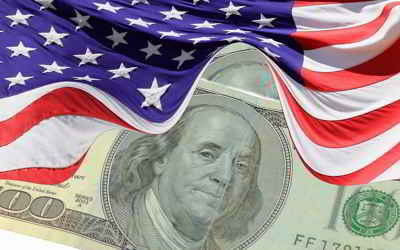Hawaii Economy
Agriculture and Industry in Hawaii
Hawaii economy is a set of human and social activities and institutions related to the production, distribution, exchange and consumption of agriculture and industry goods and services. The balance between Hawaii various economic sectors differs largely between various regions and other states in the US.Hawaii Agriculture and Industry
Hawaii's real gross state product in 2012 was estimated to be $61,877 which was $125,563 and 67% lower than the national state average, $187,440. Hawaii has the 39th highest GSP out of the 50 states.
The Hawaiian Islands are one of the most desirable vacation destinations in the world. Each year millions of tourists come to enjoy the natural
beauty of the islands. As a result, Hawaii's economy has become greatly dependent on service industries, retail trade, and transportation.
Hawaii's pleasant climate provides an ideal environment for a strong agriculture industry. Large company-owned plantations produce sugarcane and pineapples,
two of Hawaii's leading agricultural products. Coffee beans, papayas, and macadamia nuts are important crops, and commercial tuna fishing is a significant
source of income. Food processing is Hawaii's principal industry.
Nearly one Hawaiian worker in four is an employee of the military and military personnel and their families represent more than 10 percent of Hawaii's
population. The armed forces are the largest civilian employer in the state.
Hawaii Agriculture:
Sugarcane, pineapples, nursery stock, livestock, macadamia nuts.
Hawaii Industry:
Tourism, food processing, apparel, fabricated metal
products, stone, clay, and glass products.
The history of Hawaii can be traced through a succession of dominating industries: sandalwood, whaling, sugarcane, pineapple, military, tourism,
and education. Since statehood was achieved in 1959, tourism continues to be the largest industry in Hawaii, contributing 24.3% of the Gross State
Product (GSP) in 1997. New efforts are underway to diversify the economy. The total gross output for the state in 2003 was USD $47 billion; per capita
income for Hawaii residents was USD $30,441.
Industrial exports from Hawaii include food processing and apparel. These industries play a small role in the Hawaii economy, however, due to the considerable
shipping distance to markets on the west coast of the United States and ports of Japan. The main agricultural exports are nursery stock and flowers,
coffee, macadamia nuts, pineapple, livestock, and sugar cane. Agricultural sales for 2002, according to the Hawaii Agricultural Statistics Service,
were USD $370.9 million from diversified agriculture, USD $100.6 million from pineapple, and USD $64.3 million from sugarcane.
Hawaii is known for its relatively high per capita state tax burden. In the years 2002 and 2003, Hawaii residents had the highest state tax per capita
at USD $2,757 and USD $2,838 respectively. This rate can be explained partly by the fact that services such as education, health care and social services
are all rendered at the state level - as opposed to the municipal level as all other states.
Millions of tourists contribute to the collection figure by paying the general excise tax and hotel room tax; thus not all the taxes collected come
directly from residents. Business leaders, however, have often considered the state's tax burden as being too high, contributing to both higher prices
and the perception of an unfriendly business climate.

US economy is relies on private decision-making ("economic freedom")




